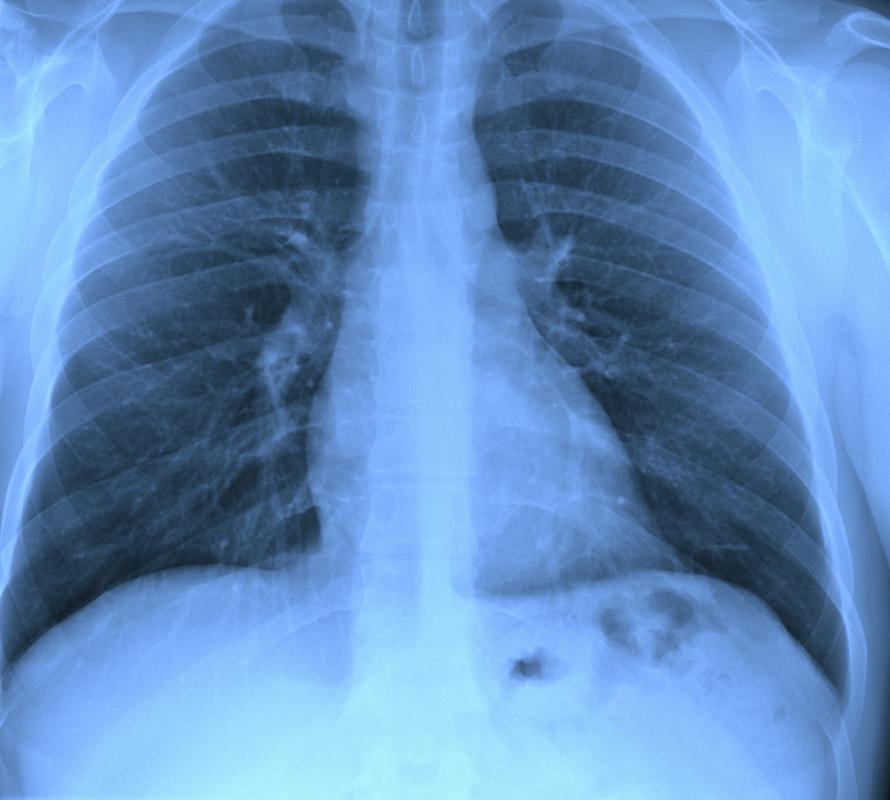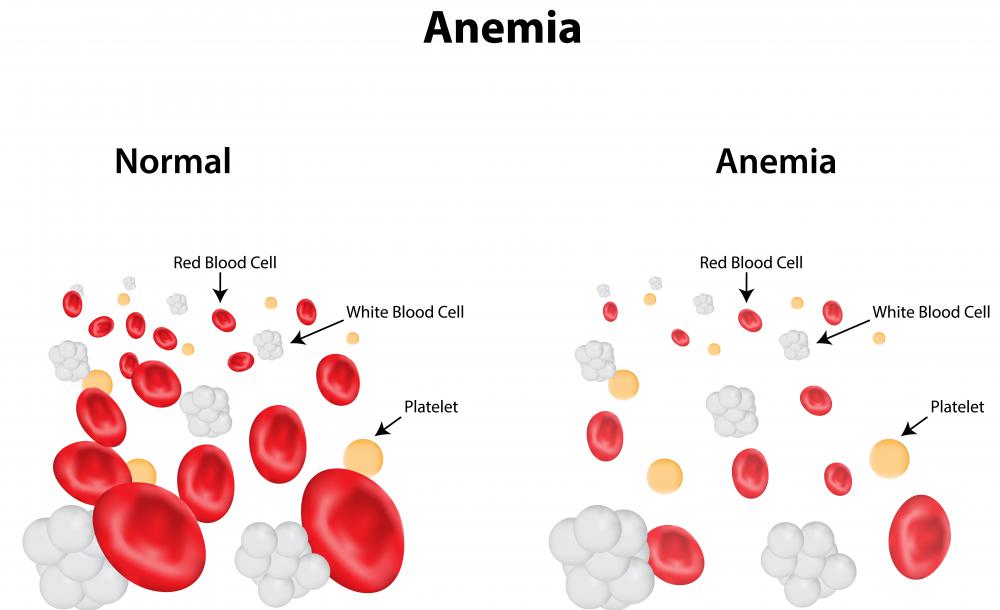At TheHealthBoard, we're committed to delivering accurate, trustworthy information. Our expert-authored content is rigorously fact-checked and sourced from credible authorities. Discover how we uphold the highest standards in providing you with reliable knowledge.
What are the Most Common Enlarged Heart Causes?
Typically, enlarged heart causes include high blood pressure, cardiomyopathy — which happens when the heart muscle becomes weak — and heart valvular disease. In addition, arrhythmia, which is an abnormal heartbeat causing your heart to pump ineffectively, and pulmonary hypertension can contribute to an enlarged heart. Sometimes individuals who experience anemia may develop an enlarged heart because the heart needs to work faster to compensate for the decrease in oxygen in the blood in these patients. Diagnosis of an enlarged heart can usually be made when it is seen on a chest x-ray or other cardiac imaging test.
Generally, people are at a higher risk for an enlarged heart, or cardiomegaly, if they have certain risk factors. Some risk factors contributing to enlarged heart causes include a family history of enlarged heart, high blood pressure, and coronary artery disease. In addition, individuals who are born with certain cardiac anomalies, such as structural defects, are at a greater risk as well. It is important to note that the absence of risk factors does not guarantee that a person will not develop cardiomegaly. In contrast, the presence of risk factors does not necessarily mean that the individual will develop this condition either.

Usually, enlarged heart symptoms include shortness of breath, breathing difficulties, and dizziness. In addition, coughing, swelling, and abnormal heart rhythm can also be symptomatic of an enlarged heart. Although there are many reasons for enlarged heart causes, patients should realize that cardiomegaly is not a disease, but a symptom or sign of another medical condition. Although symptoms such as fainting, severe shortness of breath, and chest pain can indicate a heart attack and are a medical emergency, most symptoms of an enlarged heart can be managed quite effectively if detected early.

Infrequently, enlarged heart causes are idiopathic. This means that the condition has developed in the absence of other conditions, risk factors, and for no known reason. Typically, when idiopathic cardiomegaly occurs, its signs and symptoms are the same as cardiomegaly that occurs from known risk factors and conditions. In addition, treatment and symptomatic relief is the same. Treatments for cardiomegaly and enlarged heart causes are dependent upon the cause of the condition.

Often, treatment for an enlarged heart include medications such as diuretics, which reduce the amount of water and sodium in the body. This allows for the lowering of arterial pressure in the body, which can prevent further damage of the heart tissue. In addition, beta blocker medication, which lower blood pressure and improve cardiac function are also effective, as is digoxin, which helps improve pumping function. Sometimes, pacemakers and valvular surgery are needed to restore cardiac function, and in extreme cases heart transplantation may be necessary when other treatments have proven to be ineffective.
AS FEATURED ON:
AS FEATURED ON:


















Discussion Comments
I have had an echocardiogram and diagnosed with an enlarged heart. I have the symptoms you mentioned. Shortness of breath, coughing, weakness, swelling, feeling of tightness in chest, sometimes pain in chest, and dizziness. Cardiologist says I don't have to worry. I just keep taking my lasix. I will be honest, I don't feel well at all and am afraid I will have a heart attack. My dad died with a massive heart attack at the age of 52.
Post your comments